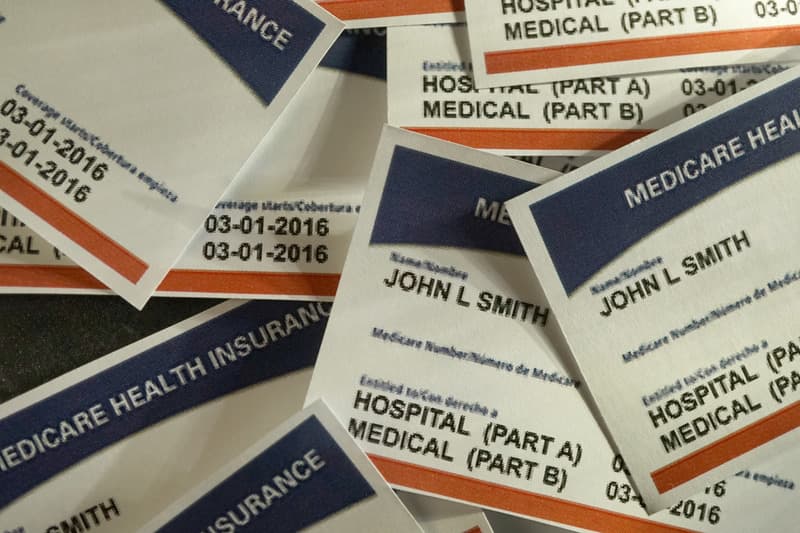A guide for when to delay Medicare enrollment and how you are covered
Are you turning 65 soon with no plans to end your career? If so, you are not alone. The average age of retirement dipped during the Great Resignation in 2020. But now the age of retirement is starting to climb north of 65 again
Speak with a Medicare Advocate
First Things First
If you are looking for a deep dive on creditable coverage, check out our article here spouse's employer insurance.
Primary vs. Secondary
Once you’ve answered the first question, consider whether your insurance will pay primary or secondary.
If your private insurance is paying primary to Medicare, Medicare pays secondary and is supplementing your employer insurance. For whatever healthcare costs pop up, your insurance takes the first swing, and if anything is leftover, Medicare comes in to cover the rest. Remember that Medicare will only pay for things covered by Medicare.
If Medicare pays primary, your employer health insurance pays secondary and is left to cover whatever Medicare will not.
When your company has 20 or more employees, that’s considered a Group Health Plan (GHP), and your insurance will pay primary. In a Small Group Health Plan (SGHP) with less than 20 employees, your insurance will pay secondary to Medicare, so you need to sign up for Parts A, B, and likely D if Medicare is meant to pay primary.
Note: If you are under 65 and eligible for Medicare due to a disability, the number used to determine primary vs. secondary coverage jumps up to 100 employees. A plan with over 100 employees is considered a Large Group Health Plan (LGHP).
The way your Medicare plan and your GHP might work together to share costs is called the Coordination of Benefits. There are systems in place that work to ensure your healthcare claims are being billed in the right order, but it’s still important for you to know how to apply these rules to your situation in case any claims are disputed. If you have any questions about the Coordination of Benefits for your situation, you can call us at 1-888-376-2028, and you can also call the Benefits Coordination and Recovery Center (BCRC) at 1-855-798-2627.
Protections
One question that we hear a lot is whether or not you have to drop your employer’s insurance plan now that you’re turning 65 and are eligible for Medicare. The answer is no, if you have creditable coverage. And further, your employer can’t pay you less, take away your insurance, or discriminate at all just because you are now eligible for Medicare. Unfortunately, these same protections are not in place if you are part of a Small Group Health Plan.
Delaying Medicare Enrollment
The next question on your mind might be how long you should delay Medicare coverage?
If you don’t have creditable coverage the answer is straightforward. Not only is it within your best interest to enroll in Medicare for the sake of insurance purposes, but you may also incur late enrollment penalties if you aren’t enrolled in Part B and Part D as soon as you’re eligible. Sign up for Medicare the first chance you get. Late enrollment penalties may stick with you for life, so best to avoid them. The Part B late enrollment penalty is 10% of your premium for each year you qualified but didn’t have coverage. The Part D late enrollment penalty is 1% for each month you didn’t have coverage after qualifying (or going 63 days without creditable drug coverage).
Assuming you have creditable coverage, you will have a special enrollment period (SEP) for 6 months after you lose coverage. That means you can enroll in Medicare after your Initial Enrollment Period without facing any late enrollment penalties for Part B and/or Part D. There are more factors to weigh. You want to run a cost-benefit analysis as it relates to your specific healthcare situation. Our agents are happy to talk you through your options. But for now, here’s where your analysis might begin:
Would switching to Medicare save you money?
Part A is premium-free for most people, and there’s a Part B premium depending on your income.
Where does your coverage overlap?
If you want to keep your GHP, is the secondary coverage worth it?
What does your current insurance not cover that Medicare might? Or vice versa?
Are you
contributing to an HSA
?If you’ve delayed enrolling and contribute to an HSA within 6 months of your Medicare enrollment, you might face a tax penalty.
If you’re enrolling once you turn 65, you need to stop making contributions a month before your start date.
One example of delaying Medicare enrollment being necessary for one of our clients involved the cost of their prescription. Their cancer treatment medication was covered by their employer’s insurance and would have been covered under Part D. Because it was a specialty drug classification under Part D plan, this drug would have ended up costing them over $10,000 a year. In this instance, they might need to stay on their GHP until 2024, when the catastrophic coverage phase of Part D drug coverage is phased out, and the maximum out of pocket costs per year is capped around $3250.
Retirement Plans and COBRA Pay Secondary
If you’re signed up for COBRA coverage, you should sign up for Medicare as soon as you’re eligible. You will not get a special enrollment period at the end of your COBRA, and may be subject to late enrollment penalties.
Medicare pays primary to COBRA.
If your COBRA includes creditable drug coverage, you have a special enrollment period of 63 days after your coverage ends.
Medicare also pays primary to retirement plans.
If you’ve got a retirement plan, your spouse’s GHP, and Medicare, it pays
1. GHP
2. Medicare
3. Retirement Plan
If your retirement plan includes creditable drug coverage, you have a special enrollment period of 63 days after your coverage ends.
Conclusion
If you don’t have creditable coverage, you should sign up for Medicare as soon as you are eligible to avoid any lapses in coverage and late enrollment penalties. If you have insurance that pays primary to Medicare, you have different factors to think through when enrolling in Medicare. Our team of experts is ready to help you figure out what suits your situation best
Recommended Articles

13 Best Ways for Seniors to Stay Active in Indianapolis
Mar 9, 2023

How Do Medicare Agents Get Paid?
Apr 12, 2023

Can I Change My Primary Care Provider with an Advantage Plan?
Aug 25, 2023

Which Medigap Policies Provide Coverage for Long-Term Care?
Sep 16, 2022

Medicare Deductibles Resetting in 2025
Jan 18, 2024

Turning 65 and Thinking of Keeping COBRA? Here’s Why It Usually Backfires
Jul 15, 2025

What Happens to Unused Medicare Set-Aside Funds?
Jan 20, 2023

Should You Work With A Remote Medicare Agent?
Sep 20, 2023

How Much Does a Pacemaker Cost with Medicare?
Nov 21, 2022

How Much Does Rexulti Cost with Medicare?
Jan 24, 2023

Is Emsella Covered by Medicare?
Nov 21, 2022

Does Medicare Cover Krystexxa?
Nov 18, 2022

How Can I Get a Replacement Medicare Card?
Aug 14, 2023

How to Compare Medigap Plans in 2025
Jul 14, 2025

Does Medicare Cover Ketamine Infusion for Depression?
Nov 23, 2022

Does Medicare Cover Service Animals?
Nov 29, 2022

How Your Employer Insurance and Medicare Work Together
Sep 27, 2022

Fair Square Bulletin: We're Revolutionizing Medicare
Apr 27, 2023
More of our articles
14 Best Ways for Seniors to Stay Active in Nashville
2024 Cost of Living Adjustment
Building the Future of Senior Healthcare
Can Doctors Choose Not to Accept Medicare?
Can I Change Medicare Advantage Plans Any Time? | Medicare Plans
Can I switch From Medicare Advantage to Medigap?
Can I Use Medicare Part D at Any Pharmacy?
Can Medicare Advantage Plans Deny Coverage for Pre-Existing Conditions?
Can Medicare Help with the Cost of Tyrvaya?
Costco Pharmacy Partners with Fair Square
Do Medicare Supplement Plans Cover Dental and Vision?
Do You Need Books on Medicare?
Does Medicare Cover Abortion Services?
Does Medicare Cover Bariatric Surgery?
Does Medicare Cover Breast Implant Removal?
Does Medicare Cover Cala Trio?
Does Medicare Cover Cartiva Implants?
Does Medicare Cover Cataract Surgery?
Does Medicare Cover Chiropractic Visits?
Does Medicare Cover COVID Tests?
Does Medicare Cover Diabetic Eye Exams?
Does Medicare Cover ESRD Treatments?
Does Medicare Cover Fosamax?
Does Medicare Cover Hepatitis C Treatment?
Does Medicare Cover Hoarding Cleanup?
Does Medicare Cover Home Heart Monitors?
Does Medicare Cover Jakafi?
Does Medicare Cover Medical Marijuana?
Does Medicare Cover Mouth Guards for Sleep Apnea?
Does Medicare Cover Oxybutynin?
Does Medicare Cover Physicals & Blood Work?
Does Medicare Cover PTNS?
Does Medicare Cover SIBO Testing?
Does Medicare Cover the WATCHMAN Procedure?
Does Medicare Cover Urodynamic Testing?
Does Medicare Cover Vitamins?
Does Medicare Cover Zilretta?
Does Medicare pay for Opdivo?
Does Medicare Pay for Varicose Vein Treatment?
Everything About Your Medicare Card + Medicare Number
Explaining the Different Enrollment Periods for Medicare
Fair Square Client Newsletter: AEP Edition
How Do Medigap Premiums Vary?
How Does Medicare Cover Colonoscopies?
How is Medicare Changing in 2025?
How Much Does Medicare Part B Cost in 2025?
How Much Does Open Heart Surgery Cost with Medicare?
How Much Does Xeljanz Cost with Medicare?
How Often Can I Change Medicare Plans?
How to Apply for Medicare?
How to Become a Medicare Agent
How to Deduct Medicare Expenses from Your Taxes
Is Balloon Sinuplasty Covered by Medicare?
Is Fair Square Medicare Legitimate?
Is HIFU Covered by Medicare?
Is PAE Covered by Medicare?
Is Vitrectomy Surgery Covered by Medicare?
Last Day to Change Your Medicare Part D Plan
Medicare Advantage Plans for Disabled People Under 65
Medigap Plan N vs. Plan G — Which One Fits You in 2025?
Seeing the Value in Fair Square
What Are Medicare Part B Excess Charges?
What Does Medicare Cover for Stroke Patients?
What If I Don't Like My Plan?
What Is a Medicare Advantage POS Plan?
What is a Medicare Beneficiary Ombudsman?
What is Plan J?
What is the Medicare ICEP?
What To Do If Your Medicare Advantage Plan Is Discontinued
What's the Deal with Flex Cards?
When Can You Change Medicare Supplement Plans?
Why Is Medicare So Confusing?
Get the Fair Square Bulletin
Medicare savings tips, helpful guides, and more.
Virgil Insurance Agency, LLC (DBA Fair Square Medicare) and www.fairsquaremedicare.com are privately owned and operated by Help Button Inc. Medicare supplement insurance plans are not connected with or endorsed by the U.S. government or the federal Medicare program. This is a solicitation of insurance. A licensed agent/producer may contact you. Medicare Supplement insurance is available to those age 65 and older enrolled in Medicare Parts A and B and, in some states, to those under age 65 eligible for Medicare due to disability or End-Stage Renal disease. Virgil Insurance Agency is a licensed and certified representative of Medicare Advantage HMO, HMO SNP, PPO, PPO SNP and PFFS organizations and stand-alone PDP prescription drug plans. Each of the organizations we represent has a Medicare contract. Enrollment in any plan depends on contract renewal. The plans we represent do not discriminate on the basis of race, color, national origin, age, disability, or sex. Plan availability varies by region and state. For a complete list of available plans please contact 1-800-MEDICARE (TTY users should call 1-877-486-2048), 24 hours a day/7 days a week or consult www.medicare.gov. © 2026 Help Button Inc
We do not offer every plan available in your area. Any information we provide is limited to those plans we do offer in your area. Please contact Medicare.gov or 1-800-MEDICARE to get information on all of your options.
MULTIPLAN_FairSquareMedicare_01062022_M
Fair Square Medicare


